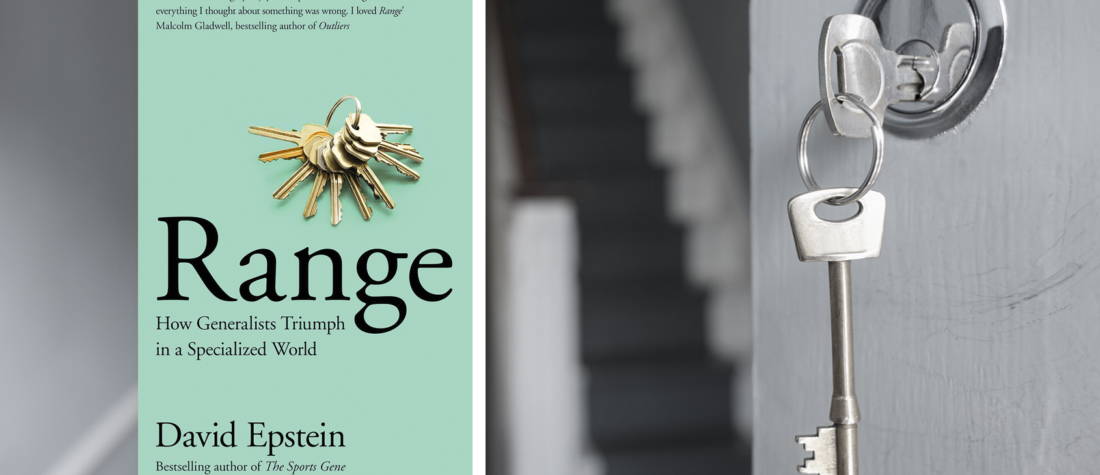If you want it to stick, learning should be slow and hard, not quick and easy. That is what is revealed in research into learning reviewed in David Epstein’s 2019 book Range. This book presents a contrarian view regarding what we know about learning, expertise and specialisation. For example, Epstein argues that
- Specialising from an early age does not develop the required expertise for solving the types of ill-defined and “wicked” problems that are encountered in most workplaces. If we are training for repetitive, predictable tasks (such as hitting a golf ball), putting in the 10,000 hours of practice suggested by Malcolm Gladwell in Outliers will produce results. But if we are seeking to gain expertise for engaging in complex, unpredictable and ill-defined activities (such as any sport with a direct opponent, any activity that involves working with other people, or solving problems that are not well-defined), developing expertise across a range of domains can be just as helpful.
- Strengths vary throughout our lifetime and change just as our personality changes. Psychologist Dan Gilbert has studied a phenomenon he calls the “end of history illusion”. That is, while we can look back and identify how much we have changed and grown in the past, we do not expect to change too much in the future. Given the fact that fundamental tastes, preferences and tendencies change over our lifetime, it makes more sense to explore different career options and be ready to pivot and change rather than set a long-term goal of becoming a nuclear physicist (for example) and then stick to it for the rest of your life, come what may.
- Expertise developed in one area only is unlikely to produce novel approaches to existing problems. New solutions are more likely to be provided by those who are experts across different domains, who bring to the table a different perspective on the problem at hand.
- Learning is more effective when it is slow and complex, bringing together a large number of different ideas and approaches, requiring the learner to sieve through different pieces of information and techniques to determine how best to solve a particular problem.
What can we conclude from these somewhat surprising findings? Perhaps we can draw out a number of guidelines which can help us to think about learning for children and learning for adults.
- There is great value in having a specialty area which we can focus on. There is even greater value when an area of specialisation is combined with a breadth of interests and areas of expertise. This allows us to think more creatively and be more agile in the way we approach our different areas of expertise.
- Deep learning is more complex than surface learning and may not be evident in short-term assessments. Despite this, we need to give our students (and ourselves) opportunities to appreciate the complexity of different domains and wrestle with this complexity rather than be satisfied with simplified concepts to learn in preparation for an assessment task.
- Don’t be afraid to try something else. Don’t be afraid to change directions, explore different areas, being intellectually curious and open-minded about what might be around the corner. Your breadth of experience and expertise will enable you to bring a new perspective to a completely different work or learning context and your changing interests and abilities will prepare you for different experiences over the course of your life. Be ready to move with these changes rather than find a role which you expect to inhabit for the next forty years.
Dr James Pietsch
Principal

